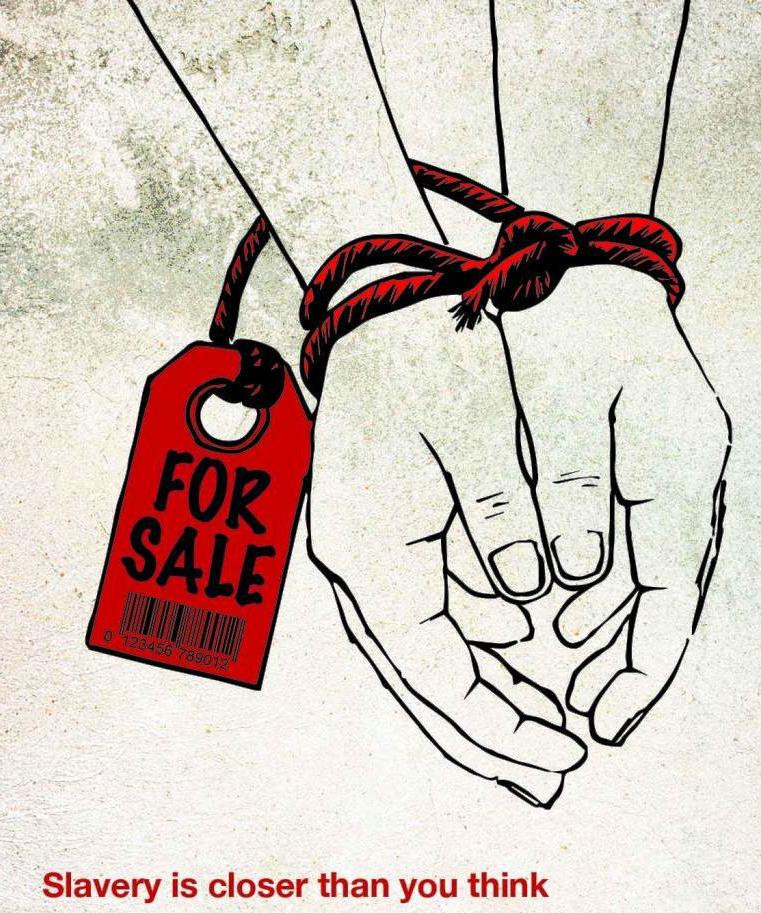11,700 trapped in modern Britains shadow economy as slave tsar tells forces to `up their game`
Britain may be “leading the world” out of modern-day slavery but there are still thousands of immigrants held in enforced servitude across the UK, a worrying report warns.
Jun 3, 2016
By Nick Hudson
Britain may be “leading the world” out of modern-day slavery but there are still thousands of immigrants held in enforced servitude across the UK, a worrying report warns.
Many are trapped in debt bondage, forced to work in low or semi-skilled jobs, while others are locked in apartments where they produce drugs or work in the sex industry.
Vietnamese children have been discovered held against their will, made to cultivate cannabis in Manchester apartments.
In London, Albanian women and girls have been found being exploited in Londons sex industry.
The 2016 Global Slavery Index (GSI) applauds the UK for its game-changing legislation in the form of the Modern Slavery Act, but the international organisation says an estimated 11,700 people have to live within the confines of the shadow economy.
And the latest worldwide figures come in the wake of a warning by the UKs first anti-slavery commissioner, Kevin Hyland, that UK law enforcement agencies should view their response with the same urgency employed for high-profile crime and counter-terrorism measures.
If you look up and down the country you would find in every policing area a response thats available to deal with drugs crime, sexual exploitation, volume crime and quite rightly so,” he said.
But actually this crime is of such a high risk and so prevalent that forces really need to up their game on this and start to respond to it in the same way.
The GSI ranks the UK 52nd in the world for its proportion of slaves, with the numbers representing 0.018 per cent of the whole population.
The figure is in line with the Home Office estimate of between 10,000 and 13,000 slaves in the UK.
The country with the worlds highest proportion of slaves is North Korea, where an estimated 1.1 million (4.3 per cent of the population) live in bondage. Other countries with the highest prevalence as a proportion of the population are Uzbekistan, Cambodia, India, and Qatar.
India, meanwhile, is home to the biggest estimated total number of slaves, with 18.4 million people (1.4 per cent) living in servitude.
It has more people living in modern-day slavery than the entire population of the Netherlands, the report estimates.
Next in terms of highest absolute numbers are China, Pakistan, Bangladesh and Uzbekistan.
All forms of modern slavery continue to exist in India, including intergenerational bonded labour, forced child labour, commercial sexual exploitation, forced begging, forced recruitment into non-state armed groups and forced marriage, the report said.
It is hard to know exactly how many people are subject to slavery, the authors of the report admitted.
In India, Gallup conducted the surveys in 15 states that were used as the basis for the estimate.
Among the sectors known to use slave labour in India are the construction, sex, agriculture, fishing and manufacturing industries as well as domestic help and begging, the report said.
Andrew Forrest, from the GSI`s Walk Free Foundation, pleaded with other developed nations to follow the UKs robust anti-slavery measures.
We call on governments of the top ten economies of the world to enact laws, at least as strong as the UK Modern Slavery Act 2015, with a budget and capability to ensure organisations are held to account for modern slavery in their supply chains, and to empower independent oversight, he said.
Leaders of the worlds major economies must bring the power of business to this issue, by requiring a focus on s


